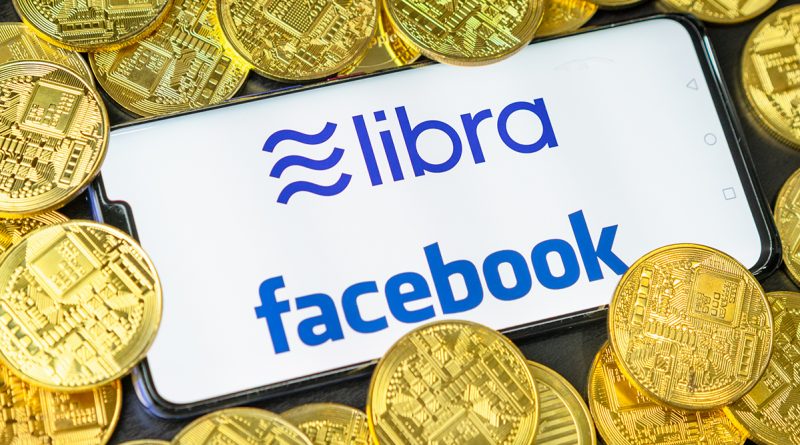Facebook’s Cryptocurrency Project Libra Fails
Facebook’s glorious cryptocurrency project has met its end. Previously marketed as a brand-new financial system, they called it something that would revolutionize how people around the world transfer money. However, it has failed to even launch. Moreover, Facebook will sell its assets and intellectual property to Silvergate bank.
About Facebook’s new cryptocurrency Libra
In 2019, Facebook created The Diem Association and intended to control a new cryptocurrency, Libra. However, it is now going to close Libra down and hold its liquidation.
The concept of Libra was to allow users to make online purchases. Besides, people would use it to send money to friends and family using the company’s channels. For example, Facebook Messenger and WhatsApp.
The Diem Association, formerly known as the Libra Association, first established its corporate headquarters in Switzerland. Then it abandoned its ambitions and relocated to the United States in May 2021. However, life was still difficult for the association even after these adjustments.
Diem’s initial plan was to collaborate with Silvergate. They planned to launch a token linked to the value of the US dollar. However, according to sources, the corporations were advised in July that neither the Fed nor the Treasury Department felt comfortable endorsing the initiative. These were probably the dialogues before we got the news that Libra would close down.
According to The Wall Street Journal, Silvergate Capital, a small Californian bank, will now purchase the technology and assets created by the association for just $200 million. The bank previously collaborated with the Diem Association. After which, it was supposed to provide services to businesses using bitcoin and blockchain. Although the project is being wound down and the sale negotiations are still ongoing.
What does Facebook have to say about this news?
Silvergate and Diem choose not to comment. Similarly, Facebook, whose parent company just changed its name to Meta, also declined to comment.
The news marks the end of a nearly three-year journey for Facebook and its partners to introduce a virtual currency. It was initially known as Libra in 2019 before changing its name to Diem in 2020. Diem’s plans were ultimately put on hold by lawmakers and regulators in the US and Europe. They were concerned about the potential effects of a Facebook-scale service on the financial system. Also, it worried them about how it would affect the control central banks have over the flow of currency. However, stablecoin, a form of cryptocurrency linked to other assets, never came into existence.
What are the reasons Libra never got to launch?
Well, the reasons are closely linked to safety and data privacy. Facebook is already so notorious for protecting its users’ data. Therefore, it caused lawmakers and regulators to think deeply about Libra. Moreover, questions arose about how Facebook will protect peoples’ financial data. Or if Libra would actually be decentralized.
However, the company secured the partnership of 27 other organizations. It included MasterCard, Visa, Uber, Spotify, and Vodafone. They agreed to form an independent association that would jointly control and governs the Libra currency. Seemingly, Facebook did so to demonstrate that it would not be in charge of the entire project. Also, it created Calibra as a subsidiary for the currency. It was also the digital wallet that would store Libra for users.
Yet, regulators and lawmakers from all over the world put Facebook under intense scrutiny. They voiced serious concerns about the company’s ability to adequately protect users’ financial data.
Also, they questioned the power Facebook would have if it had its own currency.
So, what was Facebook’s next move?
Facebook failed to give satisfying answers to these questions. Then it changed the overall project from “Libra” to “Diem” in December 2020. It happened just after the “Calibra” wallet that Facebook was developing changed its name to “Novi.” This fact is probably the most obvious indication of how badly Facebook messed up its coin ambitions. It presented the modification as an effort to show the project’s independence from Facebook. However, Occam’s razor says the true motivation behind it was to clean up the mess left by the avalanche of venomous criticism that met Libra’s original debut.
Facebook was obviously in a hostile environment.
However, Marcus, the co-creator of Diem, made matters worse. He failed to adequately answer a long array of glaring ambiguities regarding Libra. Among them was the question of whether one can use Libra to pay for things like illicit narcotics. And if not, who had the authority to censor transactions? Moreover, he failed to dispel worries that the deployment of a currency basket by Libra as the underpinning for a world stablecoin would cause national currencies to become unstable. It would have included the US dollar itself. Besides, Facebook was still in an embroil regarding a privacy issue. As a result, those who were paying close attention overheard him wailing about plans to gather and share Libra transaction data.
Final words
The Libra Association later had a number of notable corporations leave. Earlier Diem’s supporters were able to put together a small army of lobbyists. However, they were unable to make any progress. Facebook’s group appeared to be an equally flimsy diversion. The majority of the users had prior connections to Facebook. Moreover, some even claimed they had been under pressure to join since Facebook had invited everyone. This makes it impossible to believe that Facebook wasn’t really in charge of Diem. So, we can say that all these consequences contributed to the downfall of Diem and in the end, Facebook had to drop its crypto idea.




